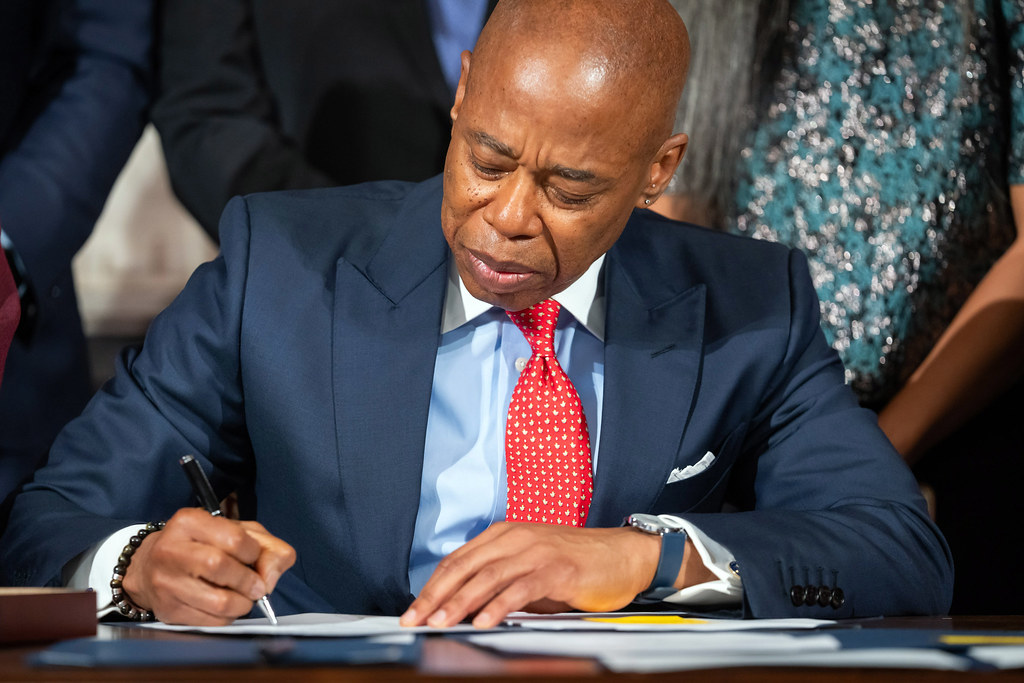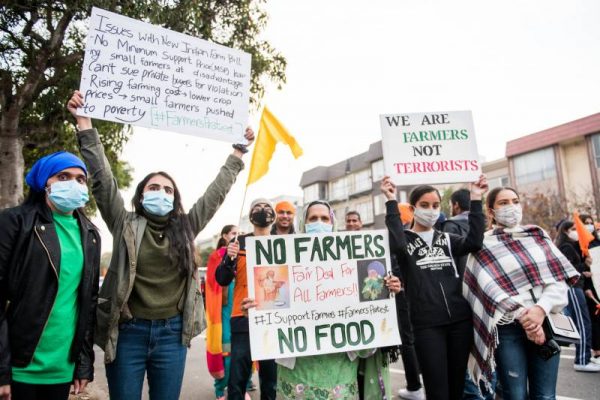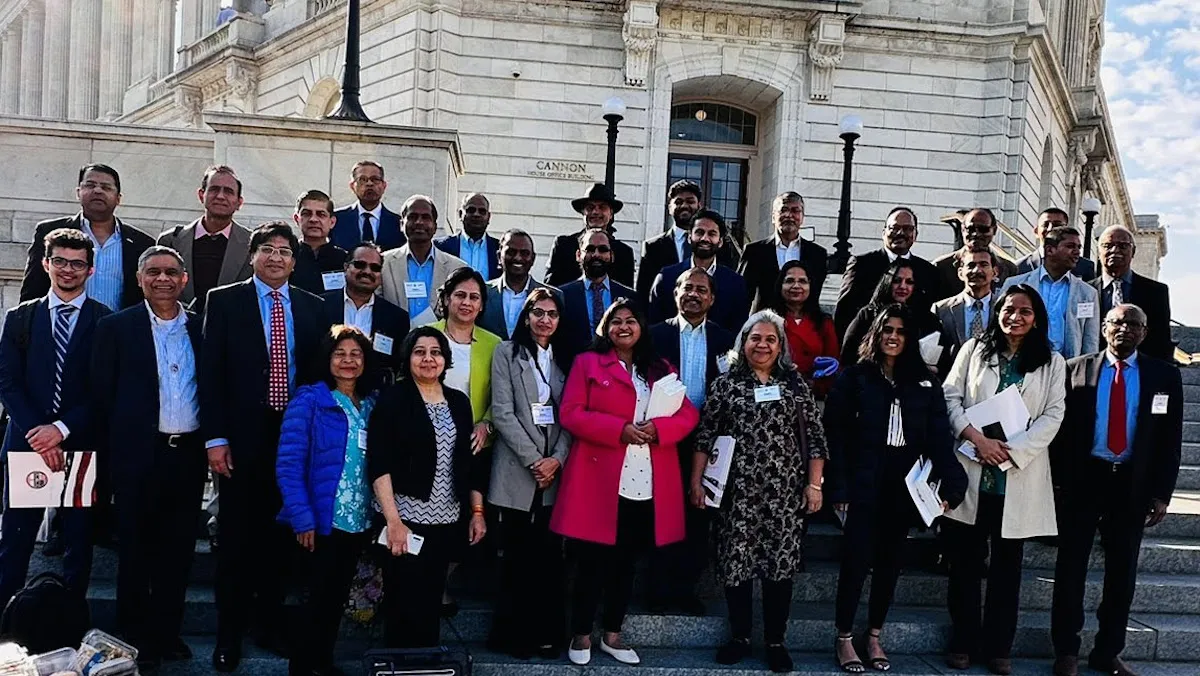Our Bureau
New York, NY
Resettlement Working Group will collaborate with other cities and National Refugee Resettlement Organizations to expand resettlement options for asylum seekers
Our Bureau
New York, NY
As New York City continues to manage a national asylum seeker crisis largely on its own, New York City Mayor Eric Adams launched an expansion of the Aylum Application Help Center, scaling up a resource that has helped thousands of asylum seekers complete complex immigration forms as they continue to pursue the American Dream.
With funding from the state, the Adams administration will open two satellite sites to assist asylum seekers in submitting applications for asylum, Temporary Protected Status (TPS), and work authorization — critical steps on the path to securing employment and living independently. As the city continues to pursue its own long-term solutions in the absence of a federal strategy, Mayor Adams also convened a Resettlement Working Group to focus on collaborating with national refugee resettlement organizations and municipalities across the country looking to boost declining populations.
The city continues to work diligently to help asylum seekers move from shelter to alternative housing by intensifying casework, reticketing migrants, and providing legal support so that asylum seekers can become self-sufficient. Thanks in large part to the city’s efforts in helping asylum seekers take the next steps in their journeys, more than half of asylum seekers who have come through the city’s shelter system have found alternative accommodations.
“While we continue to call for a national strategy to solve a national crisis, New York City continues to do its part to support asylum seekers,” said Mayor Adams. “For over a year, we have asked the federal government to put forward a resettlement strategy, expedite work authorizations for asylum seekers, and provide New York City with much needed and meaningful financial support. In the absence of that national strategy, New York City continues to lead — building out the legal and resettlement infrastructure needed to address this crisis. We hope the federal government will join us in these efforts and finish the job they started.”
“Our city has done a nation’s work — without a nation’s resources — in responding to the asylum seeker crisis, and our Asylum Application Help Center is the tip of the spear in our efforts to help asylum seekers take the next steps in their journeys,” said Chief of Staff Camille Joseph Varlack. “These satellite sites will allow us to process even more applications, getting asylum seekers one step closer to work authorization and self-sufficiency.”
“In less than six months, the Asylum Application Help Center has assisted thousands of individuals and families take important and necessary steps to ultimately continue on their path to self-sufficiency and the American Dream,” said Deputy Mayor for Health and Human Services Anne Williams-Isom. “This work will be bolstered by additional satellite sites across the city in order to help even more people. We continue to do our part as a city, and we thank the federal government for their support with work authorizations — but more federal support is needed to help asylum seekers transition more quickly to independence.”
Since opening this summer — bolstered by critical funding from state partners — the city’s help center has supported the filing of over 7,200 asylum applications, approximately 2,900 work authorization applications, and nearly 2,900 TPS applications — more than 13,000 total. The city has additionally helped asylum seekers file over 3,100 work authorization applications during two clinics hosted in partnership with the federal government and city-based nonprofits — totaling more than 16,000 asylum, work authorization, and TPS applications filed thanks to the city’s efforts in recent months.
This month, the city also launched its first satellite sites for immigration application assistance in Harlem and Lower Manhattan, and, in the coming weeks, the city will open additional sites to serve more asylum seekers in the city’s care. Interested asylum seekers can schedule one-on-one appointments at help centers, where trained application assistants provide individualized support to the applicant based on their needs. The city remains on track to identify, screen, and schedule appointments for all eligible Venezuelans who are in the city’s care and qualify for the federal government’s extension and redesignation of TPS by the end of the year.
Comprised of city officials working on the asylum seeker response, the Resettlement Working Group is meeting with immigrant and refugee resettlement organizations and experts to understand best practices from across the country and the world. The working group will also continue to connect with leaders of cities dealing with large influxes of asylum seekers, as well as with cities in need of people to fill vacant jobs. For over a year, the city has asked the federal government to lead a national resettlement and decompression plan. In the absence of action, New York City continues to lead and invest in long-term strategies like resettlement, legal services, and casework to move asylum seekers out of shelter and onto a path to stability.
Since this humanitarian crisis began, the city has taken fast and urgent action, opening over 210 emergency sites to provide shelter to asylum seekers, including 17 additional large-scale humanitarian relief centers; standing up navigation centres with support from community-based organizations to connect asylum seekers with critical resources; enrolling thousands of children in public schools through Project Open Arms and more. Earlier this spring, the city released “The Road Forward: AA Blueprint to Address New York City’s Response to the Asylum Seeker Crisis,” detailing how the city will continue to manage the influx of asylum seekers and advocate for support from federal and state partners.
As the Adams administration continues to prioritize helping asylum seekers live independently, without significant or timely state and federal assistance, the city plans to pursue a 20% reduction in spending on the migrant crisis in the Fiscal Year 2024 Preliminary Budget, which will be released in January 2024.


























